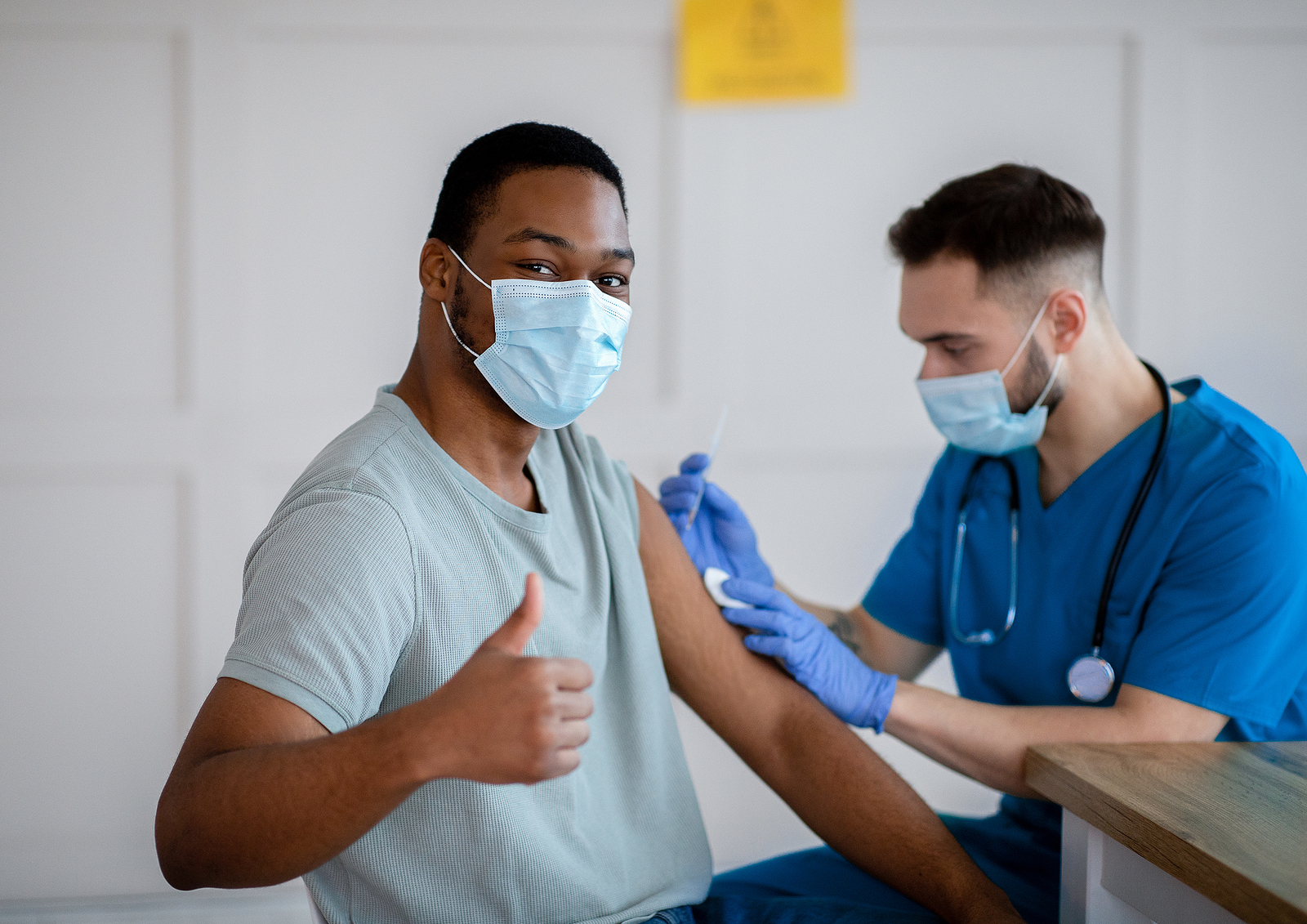Influenza (the flu) is caused by the H1N1 virus which spread worldwide during 1918 and 1919. It was first identified in military personnel in 1919. While the flu was being studied, and there were no vaccines or antibiotics to treat secondary infections, control efforts were made worldwide. These non-pharmaceutical interventions included quarantine, isolation, the use of disinfectants, good personal hygiene and the restriction of public gatherings. While we have taken massive strides towards dealing with the flu it is still important to get your flu shot.
“Cape Town epidemiologists predict that there will be a third wave of COVID-19 which will co-inside with winter this year”, premier Alan Winde stated. As we know, winter already brings with it the flu season. This makes it especially important to get vaccinated for the flu. Maytham, Professor of Infectious Diseases at UCT, notes that to avoid a “double whammy” there needs to be a robust flu vaccination and prevention plan but there are questions:
Can I tell the difference between flu and COVID-19?
It is difficult because “the typical symptoms associated with COVID-19 are similar to those with the flu” – Dr Noluthando Nematswerani, Discovery Health’s head of the center for clinical excellence.
The best tell is to see whether you have travelled to an infected area or if you have been in close contact with a person displaying COVID-19 symptoms or someone who has been diagnosed with COVID-19.
The symptoms of COVID-19 should not be ignored and include:
- A fever
- Tiredness
- A dry cough
- Aches and pains
- Running nose
- Nasal congestion
- Sore throat
- Diarrhea
- Loss of taste and smell
- Difficulty breathing
If you suspect you may have COVID-19, please call the COVID-19 National Crisis Helpline on 0800 029 999.
Must I still get the flu vaccine if I have had a COVID-19 vaccine?
An absolute resounding yes! The COVID-19 vaccine and the flu vaccine cannot replace each other. It is still important to get a flu vaccine because:
- People forget the flu can also be a serious illness. In recent years, annual flu epidemics have resulted in an estimated 3 to 5 million cases of severe illness, and about 290 000 to 650 000 deaths globally.
- Flu weakens the immune system and makes a person more susceptible to getting COVID-19. So, it’s best to avoid it altogether.
Dr Nematswerani says that “by protecting yourself against one contagious infection – the flu- you should be able to able to reduce your level of risk somewhat against the other” referencing to COVID-19.
There are more reasons to get the flu vaccine this year. The less people with flu, the more health care professionals there are available to deal with COVID-19 patients. Also, you protect others from getting the flu when you get vaccinated.
Is it safe to get the flu vaccine and the COVID-19 vaccine at the same time?
Dr Lungi Nyathi, AfroCentric Group’s managing executive: clinical risk and advisory of and owner of medical aid administrator Medscheme, advises that “South Africans in high-risk groups should take steps to ensure they receive both the flu vaccine and the Covid-19 vaccine when it becomes available to the public.”
Must I still get vaccinated if I had the flu vaccine last year?
Yes. While you may have had the flu vaccine before it is important to get it this year too. You need to get the flu vaccine yearly because the flu virus mutates. As the virus changes strengths and strains so do vaccines to stay up to date.
If I get the flu vaccine, will it give me the flu?
No. The virus in the vaccine is inactive. It does not infect, but rather promotes the development of antibodies in the body. It is, however, possible to still contract the flu even if you have had a flu shot.
Which flu symptoms are considered an emergency?
The flu can cause the need for medical intervention. Certain signs mean you should seek care right away:
In children:
- Worsening of chronic medical conditions
- A fever or cough that improves but returns or worsens
- A fever above 40 degrees Celsius
- Dehydration
- Severe muscle pain (children might refuse to walk)
- Blushed lips
- Chest pain
- Fast breathing or trouble breathing
In adults:
- Worsening of chronic medical conditions
- A fever or cough that improves but returns or worsens
- Persistent pressure or pain in the chest
- Seizures
- Not urinating
- Persistent dizziness
- Severe muscle pain
When can I get a flu vaccination?
Flu vaccines are generally available to the public from March or April each year. The best time to get the vaccine is as soon as it becomes available. This is not a final deadline. If you have the flu vaccine at any time during winter it will still be effective.
Some of the places to get the flu vaccine in South Africa include Clicks, Dis-chem and Shoprite.
Will my medical aid cover my flu shot?
Most medical aids will pay for a flu shot under ‘Screening and Prevention’ benefits especially in persons who are at-risk, but it is advisable to check your cover and benefits.
While the flu might not seem so bad you are still at risk. The flu vaccine remains the best available way of protecting yourself from the flu virus this winter. Find out if your medical aid covers your annual flu shot and remember to get them before the cutoff date!
